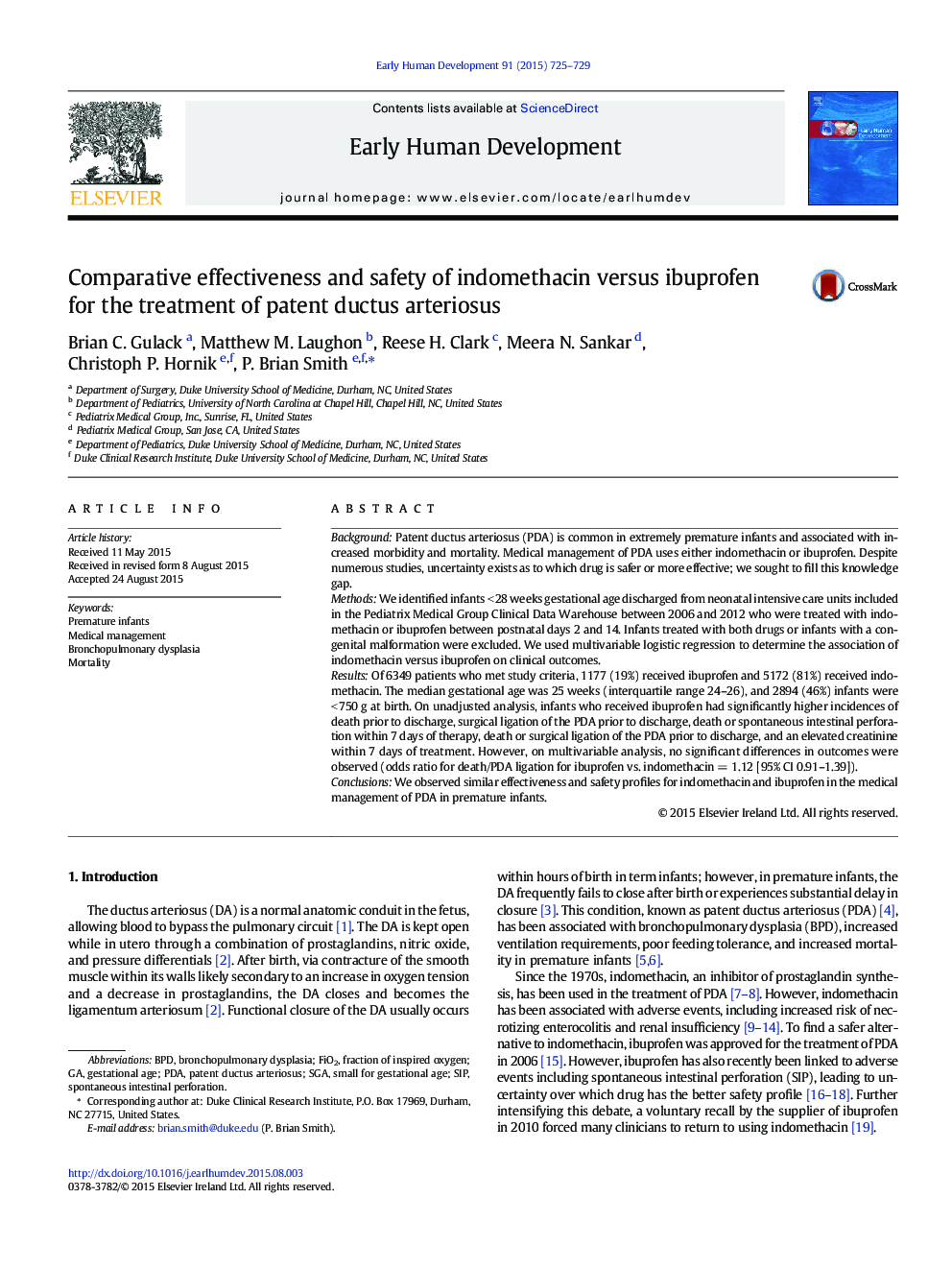| Article ID | Journal | Published Year | Pages | File Type |
|---|---|---|---|---|
| 3916708 | Early Human Development | 2015 | 5 Pages |
•We compared outcomes for indomethacin and ibuprofen for patent ductus arteriosus.•There was extensive center-level variation in the use of each.•There were no significant differences in effectiveness or safety.
BackgroundPatent ductus arteriosus (PDA) is common in extremely premature infants and associated with increased morbidity and mortality. Medical management of PDA uses either indomethacin or ibuprofen. Despite numerous studies, uncertainty exists as to which drug is safer or more effective; we sought to fill this knowledge gap.MethodsWe identified infants < 28 weeks gestational age discharged from neonatal intensive care units included in the Pediatrix Medical Group Clinical Data Warehouse between 2006 and 2012 who were treated with indomethacin or ibuprofen between postnatal days 2 and 14. Infants treated with both drugs or infants with a congenital malformation were excluded. We used multivariable logistic regression to determine the association of indomethacin versus ibuprofen on clinical outcomes.ResultsOf 6349 patients who met study criteria, 1177 (19%) received ibuprofen and 5172 (81%) received indomethacin. The median gestational age was 25 weeks (interquartile range 24–26), and 2894 (46%) infants were < 750 g at birth. On unadjusted analysis, infants who received ibuprofen had significantly higher incidences of death prior to discharge, surgical ligation of the PDA prior to discharge, death or spontaneous intestinal perforation within 7 days of therapy, death or surgical ligation of the PDA prior to discharge, and an elevated creatinine within 7 days of treatment. However, on multivariable analysis, no significant differences in outcomes were observed (odds ratio for death/PDA ligation for ibuprofen vs. indomethacin = 1.12 [95% CI 0.91–1.39]).ConclusionsWe observed similar effectiveness and safety profiles for indomethacin and ibuprofen in the medical management of PDA in premature infants.
